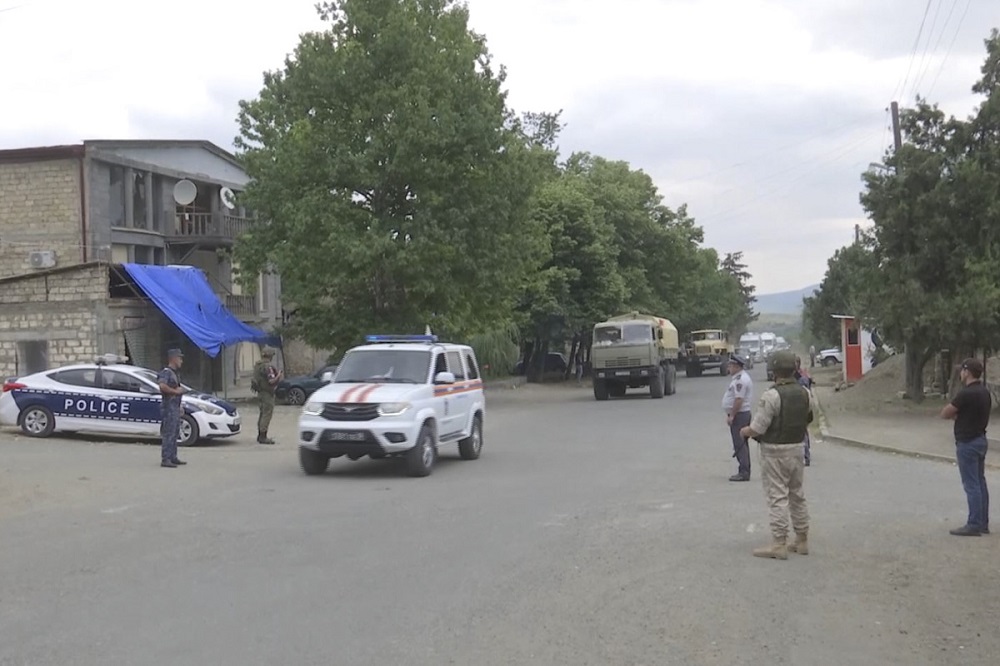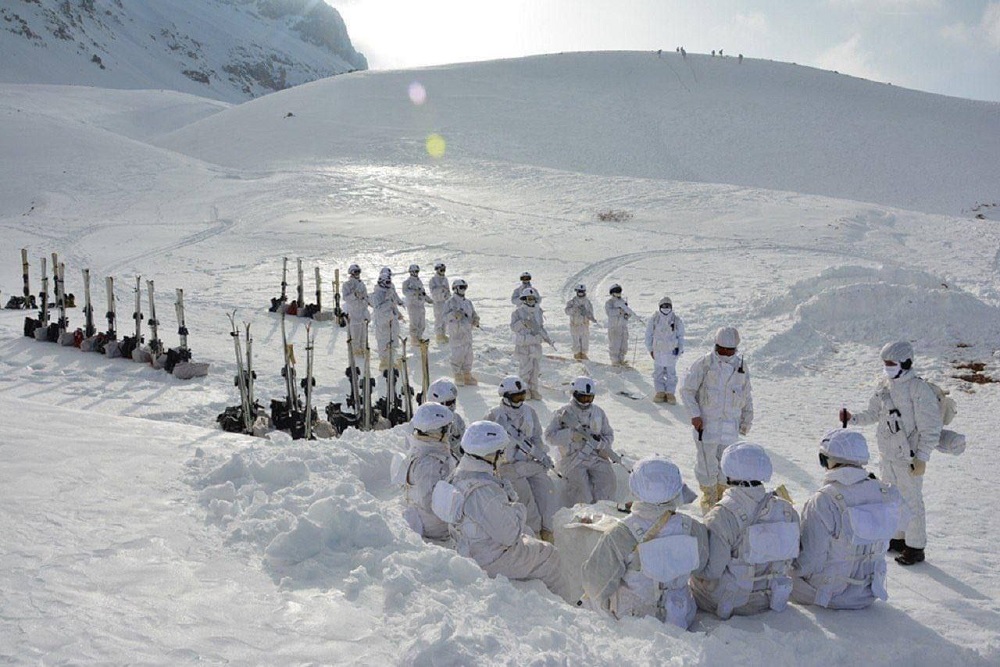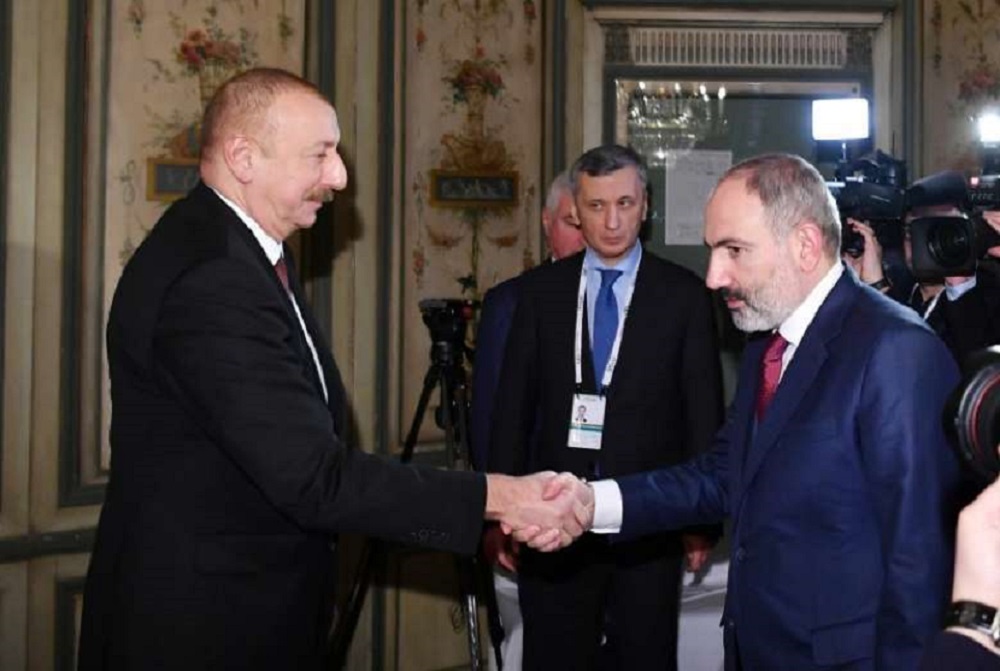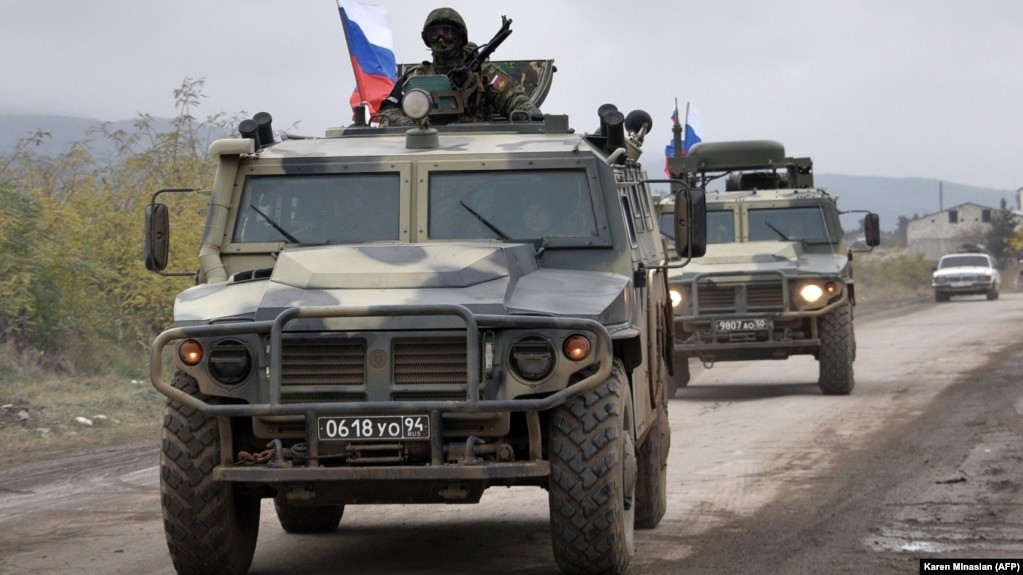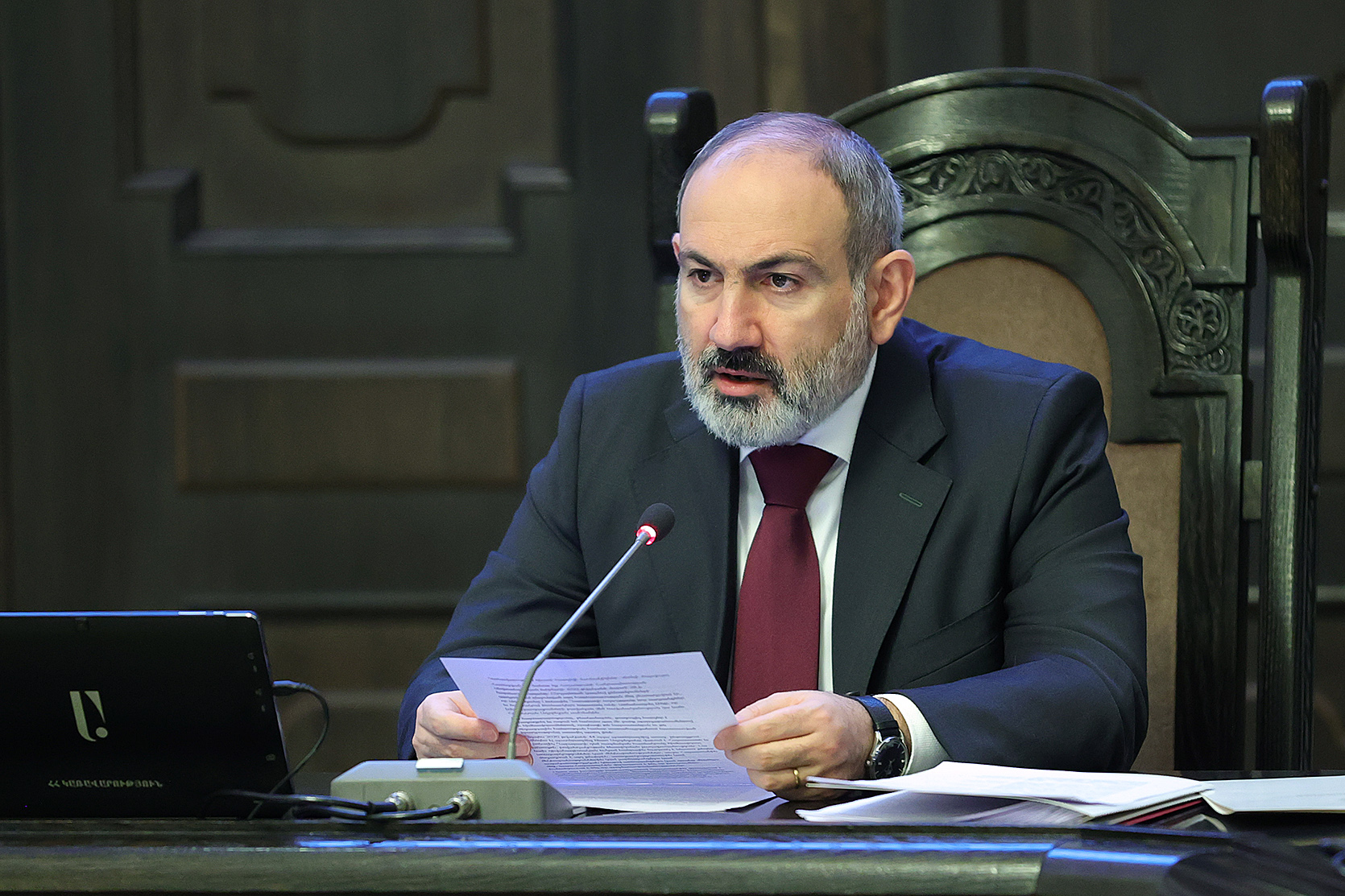EU to host talks between Armenia and Azerbaijan in its 2nd attempt to find common ground for rivals
Trilateral meeting of Azerbaijani President, Armenian PM and European Council President in Brussels
On April 6, Brussels will host a trilateral meeting between President of the European Council Charles Michel, President of Azerbaijan Ilham Aliyev and Prime Minister of Armenia Nikol Pashinyan. This is the second meeting in this format over the past six months. What do Yerevan and Baku expect from these negotiations? Comments from experts on both sides.
- ‘Triarchy’ in Karabakh? Conflicting reports from Armenian, Russian, Azerbaijani state agencies
- Baku claims Russian peacekeepers relocated from Karabakh to Ukraine, Moscow denies reports
- “We must investigate actions of Russian peacekeepers”: PM Pashinyan’s appeal to Putin
Comments from Baku
“I don’t expect anything specific from tomorrow’s meeting”
Ramiz Mammadov, political commentator
“This is the fourth meeting between Aliyev and Pashinyan in a trilateral format since the 44-day war in the fall of 2020. If we count the meeting with the participation of Macron, which took place in Brussels immediately after the trilateral meeting with Charles Michel, then it is the fifth one.
But what is strange is that we do not see any results of these meetings yet.
In January 2021, an agreement was reached in Moscow to open communications. Communications are still not open, although 15 months have passed since that meeting. Moreover, during this time, Azerbaijan managed to agree with Iran on a transport corridor to Nakhichevan, bypassing the proposed Zangezur. There is some talk from the Armenian side about the construction of the railway, but according to my information, the matter did not go further than calculating the cost of the road.
At the end of last year, at meetings in Brussels and then in Sochi, there were talks about the delimitation of the state border between Armenia and Azerbaijan. Four or five months after those meetings, we can
see the absence of any specific work in this direction.
In other words, these meetings do not yet go beyond the notorious “meeting for the sake of meeting” formula. There are no specific proposals on the table that would be supported by both sides, and which would later be implemented on the ground.
With that being said, over the past almost 30 years, the peoples of the two countries have become more than accustomed to fruitless negotiations at various levels. In fact, everything was decided on the battlefield – or almost decided.
To be honest, I don’t expect anything specific from tomorrow’s meeting. You have to be a very big optimist to think otherwise.
Of course, after each such meeting, a number of experts have thoughts about agreements between the parties that are not advertised. But then again, if nothing really happens, even such behind-the-scenes agreements are not particularly trusted.
“Continuation of the first meeting”
Agshin Karimov, political observer
“Tomorrow’s meeting can be assessed as a continuation of Aliyev’s negotiations with Pashinyan in the same city in December last year.
At this meeting, humanitarian motives will come to the fore, including the return of Azerbaijanis who went missing during the years of the first Karabakh war. Along with this, there will be EU proposals on the delimitation of the border between Azerbaijan and Armenia on the table.
On March 31, during a meeting with the OSCE Chairman-in-Office, Polish Foreign Minister Zbigniew Rau, Azerbaijani President Ilham Aliyev noted that the Azerbaijani side receives certain messages from Armenian officials. “According to the information I received, one of these messages is that they consider our proposals expedient. This is very good news and I hope that this issue will be clarified at the meeting in Brussels”, Aliyev said.
This suggests that discussions will be held in Brussels around the basic principles of the five points proposed by Azerbaijan to Armenia. The possibility of preparing a peace treaty on the basis of these proposals, as well as the European Union’s interpretation of the prospects for such a document, will also be studied.
The current position of the European Union suits Azerbaijan, because the EU is holding back from big ambitions and wants to strengthen the South Caucasus largely based on economic priorities”.
“Russia will not leave the South Caucasus alone”
Elkhan Shahinoglu, political scientist, head of the Atlas analytical center
“It is necessary, if possible, to move the negotiations between Azerbaijan and Armenia away from Russia’s monopoly. For this reason, the organization of the next meeting of the leaders of the two countries in Brussels is useful for both sides.
The EU has partner relations with both Azerbaijan and Armenia. Unlike Moscow, Brussels does not consider the South Caucasus its backyard, does not use political and military methods of pressure on the countries of the region.
In addition, amid the occupation war in Ukraine, sanctions against Russia have been tightened, Europe needs Azerbaijani gas more. And this is beneficial for us, both from an economic point of view and from the point of view of negotiations with Armenia. During the recent visit of the Minister of Foreign Affairs of Italy to Baku, the main topic of negotiations was also the transportation of Caspian gas to the “Old World”.
But despite this, Russia will not leave the South Caucasus alone. Putin has recently spoken on the phone with the President of Azerbaijan and the Prime Minister of Armenia. In all likelihood, the next meeting after Brussels will take place on the territory of Russia.
Before the war against Ukraine, the ‘owner of the Kremlin’ at least verbally called the US and Europe “partners”, but now, because of the sanctions, he uses the expression “unfriendly countries”. Moscow will try to interfere with the mission of peace in the South Caucasus by “unfriendly” Brussels.
In all cases, negotiations should be conducted in those countries that are actually interested in peace in our region. It could be both Brussels and Tbilisi. The format of Turkey-Armenia-Azerbaijan meetings in Istanbul is also possible in the future. For this, it is enough for Armenia to recognize the territorial integrity of neighboring states”.
Comments from Yerevan
Armenian Prime Minister Nikol Pashinyan himself stated that at the meeting scheduled for April 6 in Brussels, he hopes to discuss and come to an agree with the President of Azerbaijan on “all issues related to the beginning of peace negotiations”.
In this regard, political scientists in Armenia are actively commenting on the possible agenda of the upcoming meeting.
“The signing of a peace treaty will not happen soon”
Political scientist Benyamin Poghosyan emphasizes that for the first time since 1988, Armenia and Azerbaijan have come to an agreement on certain issues. He talks about the 5 points that Azerbaijan presented as a basis for negotiations on a peace agreement.
The political scientist emphasizes that the common theme “is the idea that both sides recognize each other’s territorial integrity, the inviolability of internationally fixed borders, and also undertake not to take any actions that could jeopardize territorial integrity”.
The Prime Minister of Armenia and the Minister of Foreign Affairs have already stated that there is nothing unacceptable in these points for the Armenian side, but they do not cover the entire agenda of Armenian-Azerbaijani relations. And, according to Benyamin Poghosyan, it turns out that “the main issue on which the parties have opposite positions is the issue of the status of Nagorno-Karabakh”.
As for the negotiations in Brussels, the political scientist believes that no agreement will be signed on April 6:
“It is clear that a statement will be signed, possibly only on behalf of Charles Michel, as happened on December 14, 2021. I do not rule out that there may be a trilateral statement, where it will be confirmed once again that the parties are ready to start peace talks or negotiations on a peace treaty. I also do not rule out that there will be some outline of the principles on which the parties have already reached an agreement. But these principles exist.
There are five principles with which Azerbaijan obviously agrees, since it proposed them. Armenia agrees with them too – this was stated by the Prime Minister, the Minister of Foreign Affairs and the Secretary of the Security Council.”
Meanwhile, the expert believes that Armenia is now hardly ready to sign a peace agreement, especially since there is no draft texts of it:
“There are 5 principles around which there is agreement, and there are additional principles proposed by Armenia, around which there seems to be no agreement. Therefore, to assert that we are very close to signing a peace treaty, which then involves discussion in the Constitutional Court, ratification in Parliament, etc., I do not think that we are very close to this, or that the problem will be resolved in the coming months and, for example, by the fall we will have a signed document”.
“For progress, both sides will need to make concessions”
Political scientist Tigran Grigoryan suggests that during this meeting of the leaders of Armenia and Azerbaijan, the main focus will be on the process of unblocking regional communications:
“We know that in recent months the EU has been actively involved in mediation in the context of non-political Armenian-Azerbaijani issues. We also know that at the previous meeting in Brussels, brokered by Michel, in December 2021, there seems to have been some agreement on the principles for the reopening of the railway. At least, such accents were made in Charles Michel’s statement.
However, it is clear that the recent escalation at the border, as well as the topic of a peace agreement, cannot be ignored by the parties.
At the moment, Azerbaijan is not ready to discuss any status of Nagorno-Karabakh even within the borders of Azerbaijan. Their maximum at the moment is talk about some kind of cultural autonomy, which is not serious. In the case of discussing the issue of cultural autonomy, both the issue of the security of the population of Artsakh and other political issues fall out.
And we see that in the latest statements of the Armenian authorities, the emphasis is on the issue of security. During the Prime Minister’s last speech at a government meeting, the topic of ethnic cleansing was quite prominent.
In order for this process to make any progress, one of the parties must “take a step back from its position”. That is, in the case of Armenia, it must close the issue of NK and the Nagorno-Karabakh conflict. Because, as we have seen, in the package of Azerbaijani proposals there is no direct mention of either NK or the Karabakh conflict, and the post-war rhetoric that the conflict is over is being promoted. There can also be no peace agreement that does not at least resolve security issues.
In the case of Azerbaijan, if more substantive negotiations begin on the status of Nagorno-Karabakh even as part of Azerbaijan, then this will be a change in their post-war position, which I consider unlikely in this case.
Azerbaijan speaks from a position of strength and will try to force Armenia to accept its approaches”.










